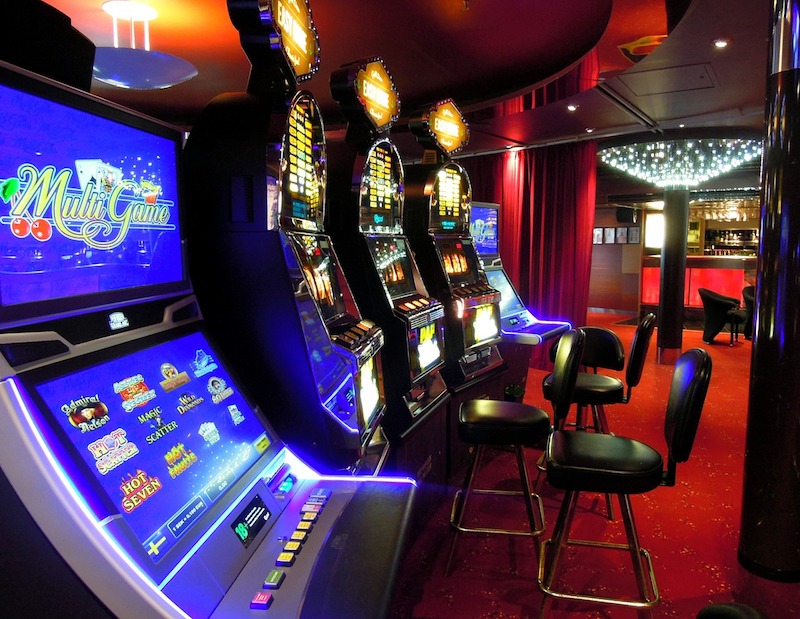
In the world of gambling, where chance and strategy converge, a unique tapestry of beliefs manifests—one that braids luck, fate, and the enigmatic nature of casino games. Casinos, bustling with excitement and anticipation, are not just venues for placing bets; they are also arenas where superstitions thrive. Ranging from the novice player to the seasoned gambler, these mysterious practices often shape how individuals approach the games they play, believing that their actions can impact the outcome in ways that go beyond mere probability.
When players gather around roulette wheels, blackjack tables, and slot machines, the atmosphere is thick with stories of lucky charms, rituals, and codified behavior that defy logic yet provide a sense of comfort. It could be the case that it’s wearing a specific outfit, following a particular sequence of bets, or even avoiding certain numbers, the attachment to various superstitions reflects a deep-rooted desire to manipulate the uncontrollable. This article delves into the captivating world of casino game superstitions, investigating the beliefs that both entertain and mystify those who dare to play.
Historical Beginnings of Superstitions
Casino games have long been connected with an variety of superstitions that go back to ancient civilizations. The roots of these notions can be associated to humanity’s fundamental need to control the uncertain outcomes associated with fortune and chance. In ancient civilizations, activities of chance were often linked to spiritual practices. Kasyno Bonus Bez Depozytu 2025 Gamblers would seek blessings or ask for favor from gods, believing that their actions could change the odds in their benefit. This groundwork laid the basis for the myriad of superstitions that spread as betting evolved over time.
During the Middle Ages, betting became a widespread activity across European nations, and with it, a rich tapestry of superstitions developed. Players adopted various rituals and charms, believing they could affect the outcome of games. The importance of digits, in particular, began to show in superstitions pertaining to card games and dice. The number 7 was often considered favorable, while different numbers carried unfortunate connotations. These ideas mirrored the cultural contexts of the time, adapting as they transferred through generations and changed to new gaming environments.
As gaming establishments developed in the seventeenth century, particularly in Italy and France, the atmosphere surrounding betting became steeped in mystique. The growing availability of casino games allowed for the spread and growth of superstitions among players. Concepts like fortunate charms, designated seating positions, and rituals gained prevalence, creating a unique culture within betting houses. As these customs continued to thrive, they became fundamental to the identity of casino games, illustrating how history and society shape the belief systems that influence how players engage with fortune.
Widespread Gambling Superstitions
Superstitions surrounding casino games are plentiful and varied, mirroring the hopes and fears of players as they participate in random activities. One of the most prevalent views is that certain numbers bring luck or bad luck. For example, the number seven is often seen as a lucky number, frequently embraced by gamblers looking for a positive outcome. Conversely, the number thirteen is routinely considered cursed, leading many gamblers to steer clear of it during their gambling sessions.
A frequent superstition relates to practices that players believe can influence their odds. Whether blowing on the dice before a throw, using a particular hand to place a bet, or even putting on specific items of clothing, many people feel that these actions can tilt luck in their benefit. These practices offer a feeling of power in an otherwise unpredictable environment, strengthening the idea that fortune can be manufactured through personal beliefs and customs.
Finally, the ambiance and atmosphere of the gambling house itself adds to myths. Many gamblers suggest that the presence of specific symbols, such as four-leaved clovers or lucky coins, can enhance their chances of winning. Additionally, players might hold to the notion that winning streaks can be halted by mundane occurrences, such as a person passing by or a spill at the gaming surface. The collective atmosphere in a gambling house can amplify these superstitions, creating a shared culture of superstitions that goes beyond single experiences.
Impact of Superstitions on Players
Superstitions play a crucial role in the psychology of casino players, often affecting their actions and choices. Many gamblers think that luck can be influenced through various rituals, such as donning a talisman, choosing particular hues, or steering clear of particular digits. This dependence on superstitions can create a feeling of control in an environment that is inherently unpredictable. Players frequently feel more self-assured and involved when they think that their actions could sway the result of a game in their favor.
The impact of these superstitions extends past individual players, affecting the overall atmosphere inside the casino. For example, a player who believes in the luck of a particular slot machine might attract a crowd, as others are fascinated by their apparent success. This shared belief can heighten excitement and create a lively environment, leading to an engaging experience even for those who may not necessarily be believers themselves. The buzz around certain games can lead to higher participation and longer playing sessions, supporting the casino’s lively social scene.
In some instances, superstitions can lead to negative effects for players. Relying too much on rituals can result in poor gambling decisions, as some may ignore basic strategies in favor of unfounded beliefs. Additionally, the stress to perform rituals may increase anxiety and tension, diminishing from the enjoyment of the experience. Ultimately, while superstitions can enhance the thrill of playing casino games, they can also lead to unwise choices that overshadow the enjoyment and amusement intended in the casino experience.